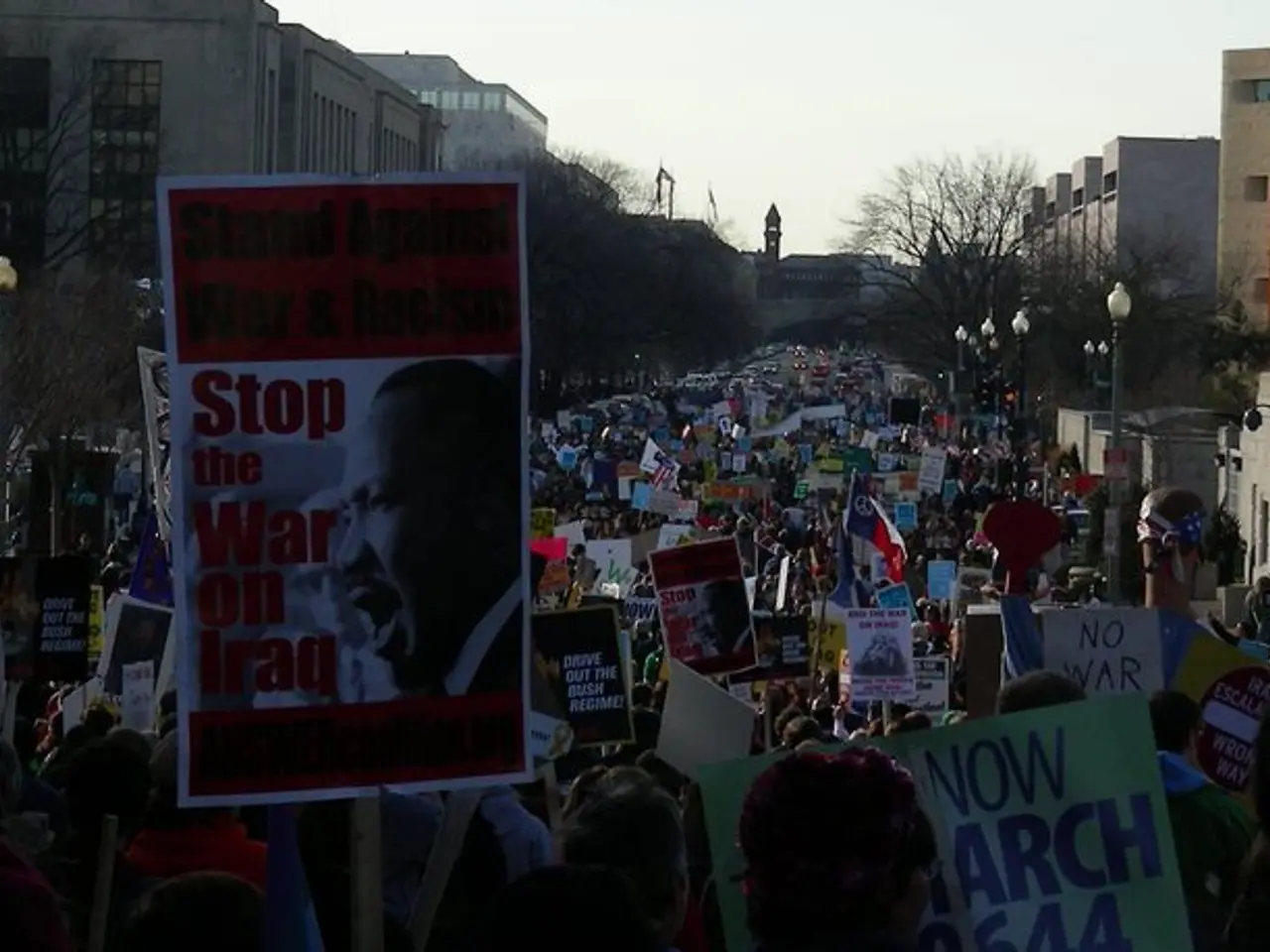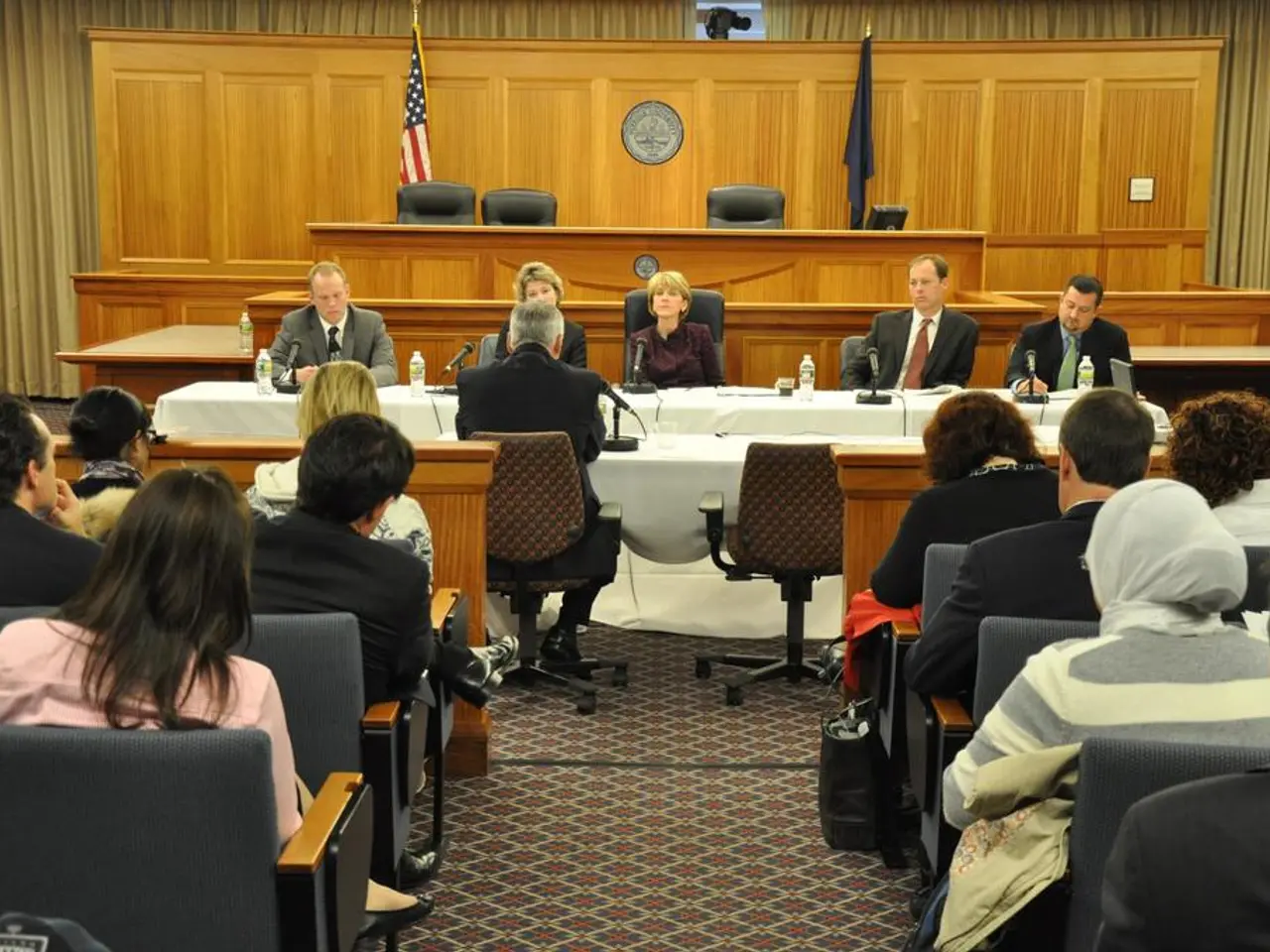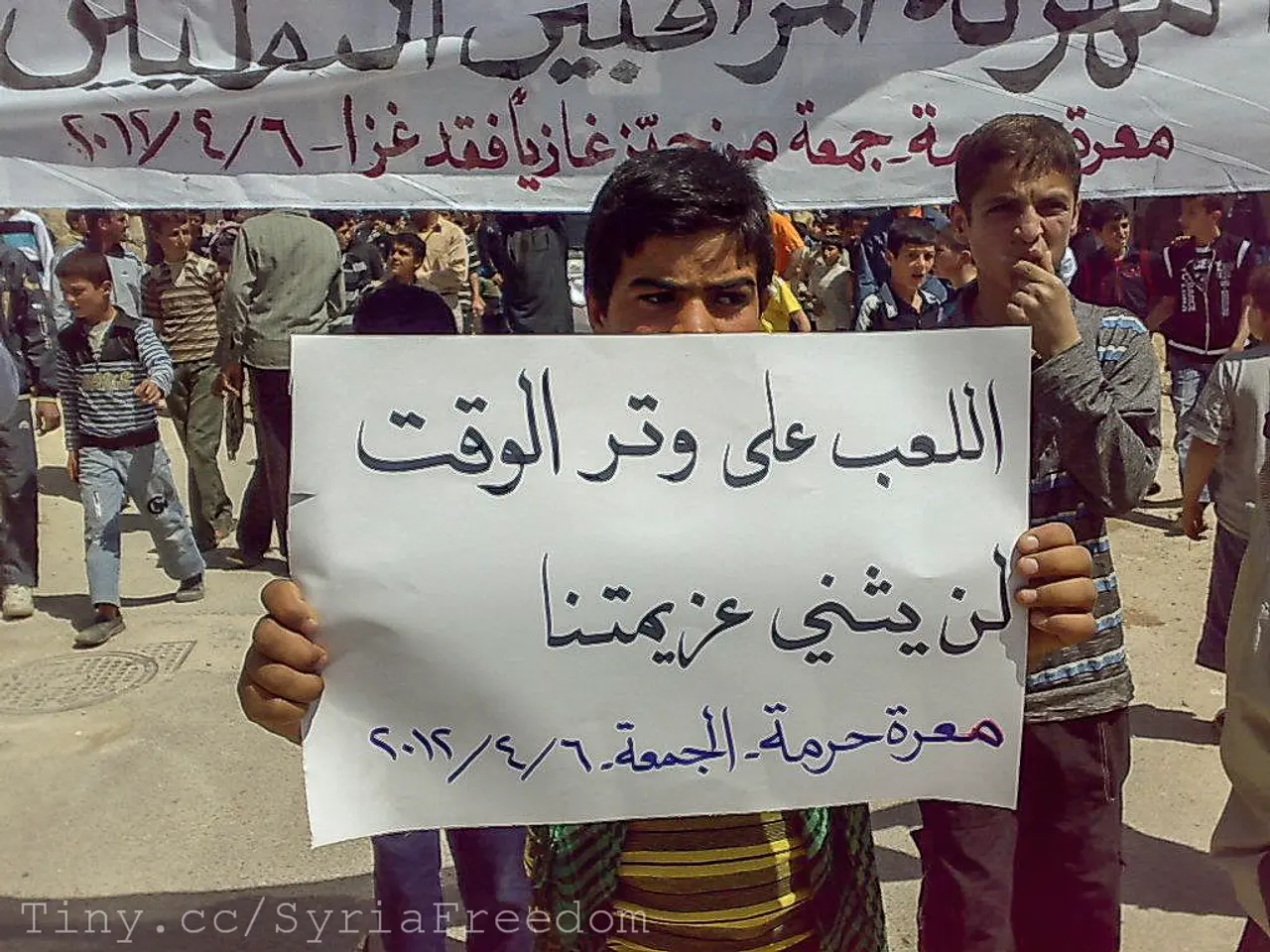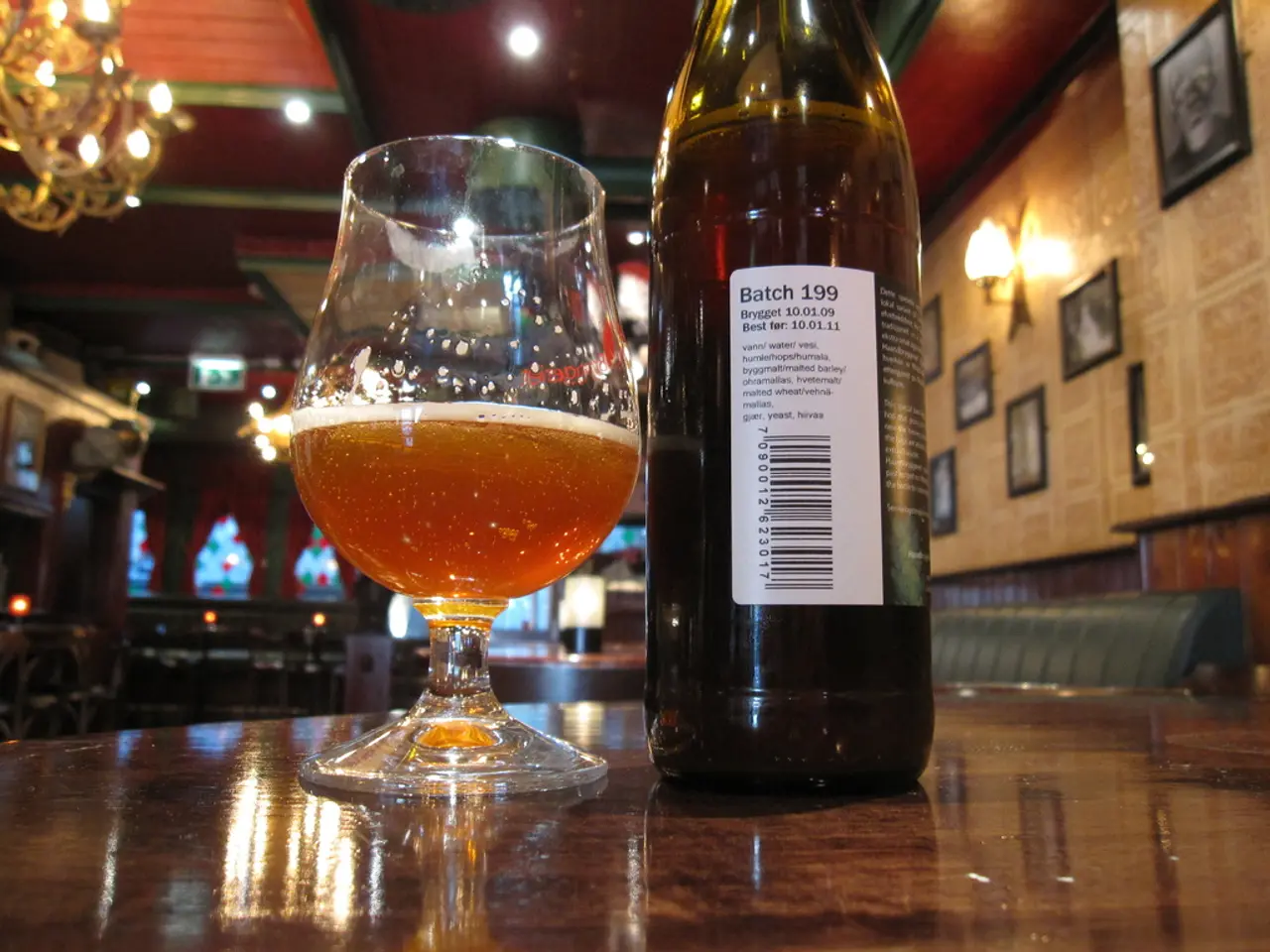Turkish authorities initiate peace treaty negotiations with the PKK, potentially marking an conclusion to the prolonged armed conflict.
Turkey and the PKK Reach Historic Milestone
In a significant development, the Kurdish militant group PKK has announced its dissolution and called for the laying down of arms, marking the end of four decades of hostilities [1][2]. This decision comes after a series of talks and negotiations that started in early 2024 and culminated in the PKK's self-dissolution aimed at ending armed conflict.
The latest developments have seen PKK fighters in northern Iraq begin to surrender their weapons in a symbolic ceremony, signifying the first concrete step towards disarmament [3]. This announcement was preceded by a call from jailed PKK leader Abdullah Öcalan, who urged his group to disarm before a peace ceremony [4].
To oversee this peace initiative and the subsequent legal and political reforms, a newly formed parliamentary committee in Turkey, named the National Solidarity, Brotherhood and Democracy Committee, has been tasked with the responsibility [5]. The committee, comprised of 51 members from most major parties, has been charged with proposing and supervising these reforms aimed at advancing the peace process.
The PKK, considered a terrorist organization by Turkey, the United States, and the European Union, has been waging an armed insurgency against Turkey since 1984 with the aim of establishing a Kurdish state in the southeast of the country [6]. However, the group's objective has evolved from establishing a Kurdish state to seeking greater autonomy and rights for Kurds within Turkey [7].
Previous peace efforts between Turkey and the PKK have all ended in failure, most recently in 2015 [8]. This time, Turkish leader Recep Tayyip Erdogan has described the PKK's disarmament as a "new page in history" [2]. Turkish Parliament Speaker Numan Kurtulmuş called the committee's launch a "historic turning point" [5].
While the dissolution of the PKK is broadly welcomed by Turkish authorities, concerns remain about the broader peace process. Analysts note that although disbanding the PKK could signal the end of armed Kurdish insurgency, Turkey’s government under Erdoğan is consolidating power and tightening control over Kurdish political expression and opposition groups simultaneously [4]. This raises concerns that the peace process could lead to greater authoritarianism rather than genuine reconciliation and Kurdish rights advancement.
Key contextual points:
- The peace negotiations went through phases: from secret contacts (Phase 0, April-Sept 2024) to public talks and formal calls for PKK disarmament (Phase 1 & 2), leading to PKK’s self-dissolution (Phase 3 ongoing since May 2025)[1].
- The legal framework and practical steps for disarmament and societal reintegration of Kurdish fighters and affiliated groups, including Syrian Kurdish forces linked to the PKK, are ongoing but remain confidential[3].
- There is significant emphasis from Kurdish advocacy groups on the need for sincere negotiations addressing Kurdish rights and human/citizen rights in Turkey as critical for lasting peace[5].
In summary, the PKK’s official dissolution and call to lay down arms mark the most significant recent development in the peace process, but the political environment in Turkey remains tense and opaque, with ongoing closed-door negotiations focused on how to implement the disbandment and manage the Kurdish issue politically and legally [1][2][3][4].
- This historic milestone in Turkey's war-and-conflicts, the PKK's self-dissolution, is a direct result of extensive political negotiations, marking an end to four decades of hostilities.
- The unfolding peace process, involving the disarmament of PKK fighters and the ensuing legal and political reforms, is under the watchful eye of a parliamentary committee, highlighting the intersection of politics and general news.








